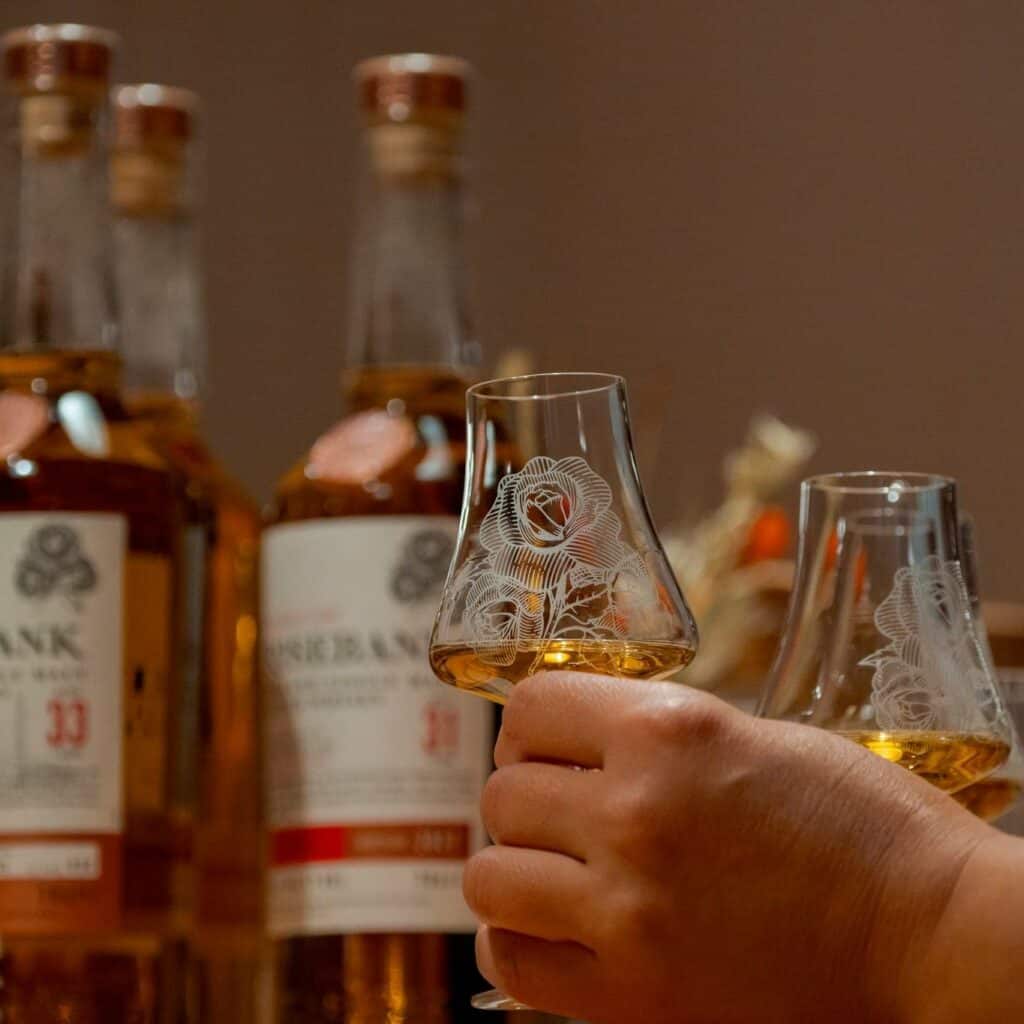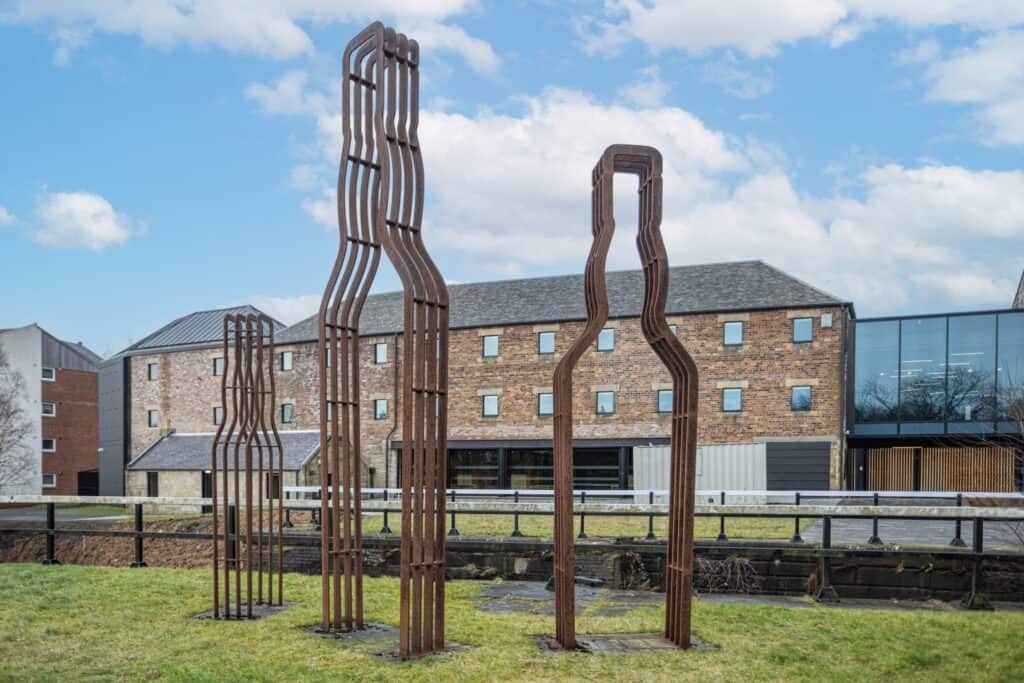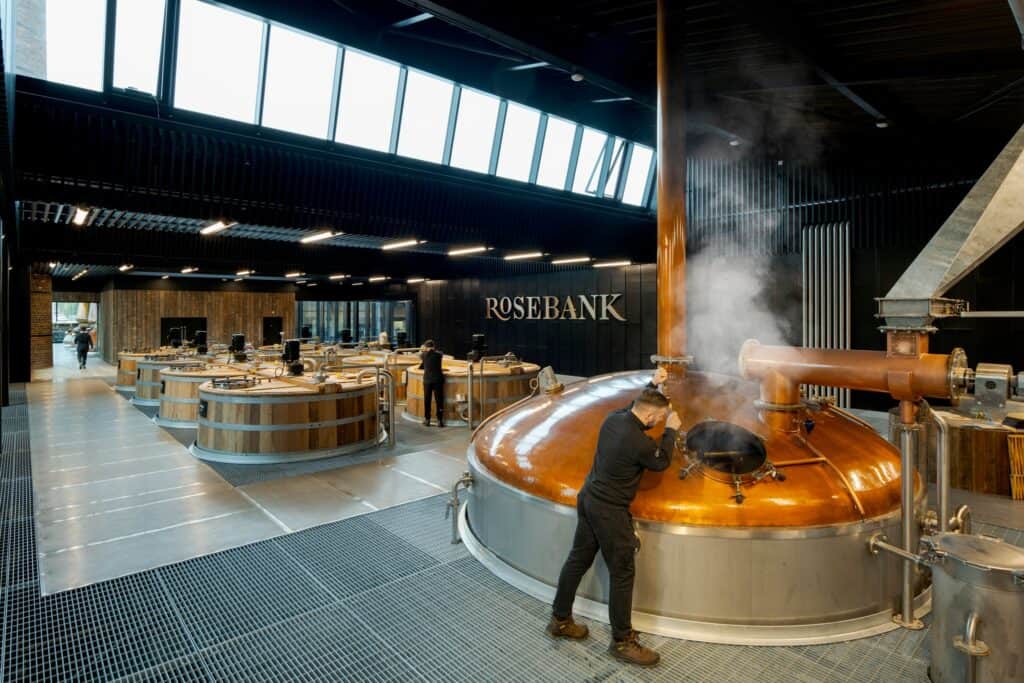It’s always an enormous shame when a distillery is forced to close, or worse still, be knocked down and demolished. When that happens, not only does a working distillery go out of business, but we also lose an important part of history.
Up until recently, one of Scotland’s most famous mothballed distilleries was the Rosebank. A mothballed, or ‘silent’ distillery is one which is still intact, but is no longer operational. Falkirk’s Rosebank Distillery was a prime example of this.
After having been closed for over three decades, rumours of investment and refurbishment began to circulate. Those rumours proved to be true and finally, in 2017, Ian Macleod Distillers announced that they would be restoring the historic monument.
Rosebank is a distillery we’re particularly fond of here at Great Drams, largely due to its history. It’s a Falkirk monument that’s every bit as famous as the Kelpies and the Falkirk Wheel – which happens to sit on the same canal network as Rosebank.
This is the story of the reawakening of the Rosebank Distillery.
King of the Lowlands
The Rosebank Distillery has roots dating all the way back to 1840.
Like many of its ilk, the distillery came from very humble beginnings. It was founded by a tea blender and wine merchant by the name of James Rankine.
Rankine clearly knew his stuff and his background in wine and tea blending proved very useful. He converted the nearby Camelon distillery into a distillery specialising in whisky. It grew from here and became a part of UDV (United Distillers and Vintners) who were one of many predecessors for global drinks giant Diageo.
The distillery, instantly recognisable from miles thanks to its towering Victorian red-brick chimney, enjoyed huge success for over a century. So much so in fact, that the distillery was referred to as the ‘King of the Lowlands’.
The distillery was known far and wide and was especially popular amongst local school kids. Rosebank would regularly discharge their wooden worm tubs into the canal, particularly Loch 11. When this happened, the water would bubble, and steam would erupt. The kids would see this and yell ‘Rosebank’s gone’! Many of the kids would dive into the canal and go swimming as the water would be warmer. Some even learnt to swim here.
Another story tells of the tasting room in the loch keeper’s cottage and how a tap was discovered here, with a pipe leading into the distillery’s spirit receiver. Imagine having your own private whisky tap? That’s some next level spirit theft right there.
Towards the end of the 1900s however, things began to change, and not for the better…
Gathering Storm Clouds
If you happen to be of a certain age, or know your British history, you’ll know that the 1970s and 80s were particularly rough. The UK found itself in recession, energy usage was rationed, there were protests and strikes, and inflation was also out of control. Sounds sort of familiar, right?
During the 1970s, as oil prices surged, energy was rationed, and bills increased, people and businesses were forced to cut back. The demand for luxuries such as fine Scotch whisky began to dwindle, and in the 1980s distilleries had an influx of Scotch that they couldn’t get rid of.
Many distilleries were forced to close and although she put up a good fight, the Rosebank Distillery was also forced to close in 1993, with the site being purchased by the British Waterways Board (Now known as Scottish Canals), nine years later.




For more than two and a half decades, the Rosebank Distillery lay silent.
The site nearly became a micro-brewery in 2014, but plans fell through. In 2017 however, Ian Macleod Distillers, owned by the Russell family, purchased the Rosebank brand along with casks pre-dating 1993, from former owners Diageo.
I love how Leonard Russell and his son managed to save the site. One day they happened to be driving past the site of the distillery, and noticed the poor state of repair it was in. ‘That’s a shame’ Leonard remarked. Next thing you know, they’d purchased the site and began restoring it.
After going over budget by more than triple, not to mention having had the original copper mash and stills stolen at Christmas 2008, and the small matter of a global pandemic in 2020, the Rosebank Distillery was reawakened in June 2024.
Architects did an amazing job of blending past with present and were even able to keep the renowned 108ft red-brick chimney, though only for aesthetic purposes.
Now boasting three working stills, a state-of-the-art visitor centre, immersive tours, tasting experiences, a tasting room, and so much more, Rosebank has well and truly been reawakened.
If you’re looking for whisky, or whisky-related info, be sure to head over to GreatDrams.com and take a look at some of the amazing multiple-award-winning whiskies we have available.
Whether you’re after a fruity Speyside, a peaty Islay, or anything in between, here at GreatDrams we’ve got you covered. We’ve also an abundance of whisky-related info for you to read at your leisure, so be sure to check out our blog.
The post Rosebank Reawakening appeared first on GreatDrams.









